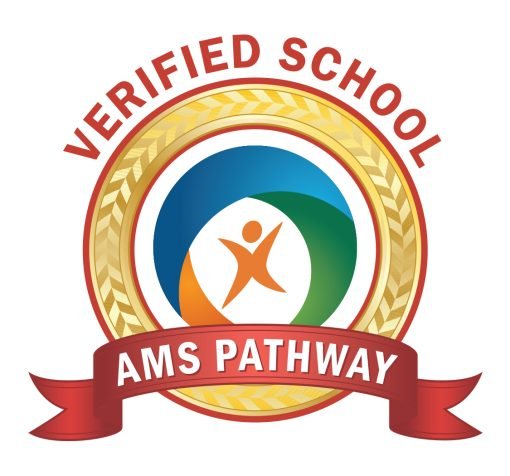Did you know that it is part of the Montessori approach to begin developing language and literacy skills at home?
Language is the central point of difference between the human species and all others. Language lies at the root of that transformation of the environment that we call civilization…Language is an instrument of collective thought…Hence, language is truly the expression of a kind of superintelligence. ~ Maria Montessori, The Absorbent Mind.
Maria Montessori once emphasized the profound role of language in human civilization. In the journey of child development, language acquisition remains a pivotal milestone. From the foundational stages of oral language to the complexities of reading and writing, nurturing language skills at home is paramount.
Whether your child is just beginning to decipher letters or delving into complex narratives, join us as we learn about developing language and literacy skills at home.
UNDERSTANDING THE LANGUAGE JOURNEY
Children progress through distinct stages of language development. In the first plane of development (0 – 6 years), toddlers and young children acquire oral language, phonics, and phonemic awareness, and lay the foundation for reading. This journey continues into the elementary years (6-12), where reading becomes a tool for learning, writing expands into fiction and non-fiction essays, and effective communication skills are honed
THE READING ROPE: A SCIENTIFIC APPROACH
According to Prof. Stanislas Dehaene, in his presentation “How the brain learns to read” on the WISE Channel, the Science of Reading incorporates the cognitive stages of brain development and is supported by neuroscience. Brain scans of infants as young as 2 months old reveal activation of brain regions linked to language when exposed to language stimuli.
At Montessori House for Children and Elementary School, we utilize the Scarborough’s Reading Rope, a scientifically proven approach to literacy skills. Developed by Dr. Hollis Scarborough in 2001, the Reading Rope comprises five major components: Phonemic and Phonological Awareness, Fluency, Vocabulary, and Comprehension.
PHONEMIC AND PHONOLOGICAL AWARENESS
These skills form the basis of reading proficiency. Phonemic awareness involves recognizing letter-sound correspondence, while phonological awareness extends to manipulating sounds, syllables, onsets and rhymes, and phonemes.
As children learn to read, they often feel excited and eager to read independently. As a parent, what steps can you take to help your child develop their phonemic and phonological awareness during this initial phase?
- Be patient. Emergent readers are slow readers, give your child time and avoid the urge to jump in to help too quickly.
- When your child makes a mistake reading phonemes, ask your child: What sound does this letter make?” Be sure to help your child if they don’t remember.
- Model the sounds of phonemes
- Follow along with your finger as you read to reinforce left-to-right tracking.
- Offer an extensive spoken vocabulary through daily reading from diverse topics.
- Discuss the story with your child after they finish reading a book.
Fluency: Beyond Word Recognition
Fluency, one of the five components of the Science of Reading, is a cornerstone for academic success. While all five components are crucial and interconnected, fluency serves as the glue that enables young children to develop a deeper comprehension of what they read. This fosters a lasting relationship with knowledge.
Fluency goes beyond only word recognition; it involves the integration of accuracy, speed, and prosody in reading. When children achieve fluency, they are not only decoding words effortlessly but also comprehending the nuances and meanings that are weaved in the text. This skill is pivotal in the early stages of learning. It lays the foundation for advanced cognitive abilities and critical thinking.
What activities can you do at home to help with fluency? How can you assist in developing language and literacy skills at home?
- Read aloud to your child frequently! This practice allows them to hear your pace, accuracy, and expression. Model proper intonation, especially when characters speak, and emphasize punctuation such as question marks and exclamation points. These small details make a significant difference in comprehension.
- Use varied reading materials, including not only stories but also expository texts.
- Encourage your child to read to you, offering positive feedback to boost their confidence and improve their fluency.
Vocabulary and Comprehension
Vocabulary is crucial to reading comprehension. Readers cannot understand what they are reading without knowing what most words mean. As children learn to read more advanced texts, they must learn the meaning of new words that are not part of their oral vocabulary. Scientific research on vocabulary instruction indicates that the majority of vocabulary is acquired indirectly, while some words require direct teaching. Here are some ways you can support developing language and literacy skills at home
- Reading aloud to your child and encouraging them to read independently are the most effective methods for expanding their vocabulary. Books offer words they won’t encounter in everyday conversations, as the language found in books tends to be more comprehensive and formal compared to spoken language.
- Nonfiction and informational books (such as the DK Eyewitness series) offer young children a treasure chest of new and interesting words about our world, including age-appropriate dictionaries.
- Talk about new words: during read-aloud, word of the day.
- Offer simple, kid-friendly definitions & examples that make sense within their daily life.
- Keep your new words active within your house.
- Game Board: Scrabble – most of us play this traditional game, and it works and is fun.
- Discuss new words during read-aloud sessions or designate a “word of the day.”
- Provide simple, kid-friendly definitions and examples that relate to their daily life.
- Keep these new words active within your household.
- Additionally, incorporate word games like Scrabble, a traditional and enjoyable way to reinforce vocabulary skills.
ABOUT MONTESSORI HOUSE FOR CHILDREN & ELEMENTARY SCHOOL
Montessori House, a family-owned and operated school since 2006, provides a continuum of Montessori education for ages 16 months through 6th grade. As an AMS Verified School committed to continuous improvement, our focus on Montessori authenticity cultivates joyful, self-motivated, and confident learners. We’re not just educating; we’re shaping future leaders. Our approach fosters curiosity, independence, and self-motivated learning, valuing the whole child—emotionally, socially, ethically, and academically. Students thrive in an environment that recognizes unique talents, providing opportunities for them to achieve their highest potential. Ideal students come from families who value holistic education, embrace cultural diversity, and have a natural enjoyment of learning and self-motivation.




